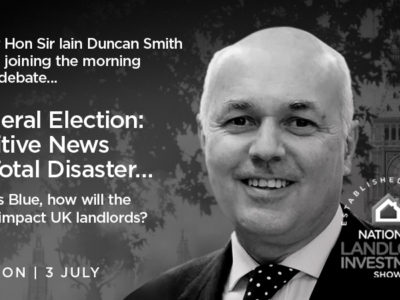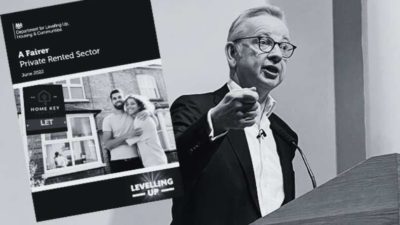Plans to introduce new rent controls in London would be a ‘disaster’, according to the Residential Landlord Association (RLA).
London Mayor Sadiq Khan wishes to introduce the measures to prevent London rental prices rising to increasingly unaffordable levels for those living in the capital’s private rented sector (PRS). The RLA is concerned that the plans would hit the PRS at a time when demand already exceeds supply.
Mr Khan has positioned the idea at the heart of his campaign to be re-elected as Mayor of London in this May’s election.
A disaster for aspiring renters
One of the RLA’s claims about the plans for rent controls was that they would be a negative shock to the PRS. This would come at a time when supply of rental properties is unable to match the demand from a growing population of renters.
John Stewart, policy manager at the RLA, and Chris Norris, policy director for the National Landlords Association (NLA), explained: “All they would achieve, as history and experience elsewhere tells us, is to drive landlords out of the market, exacerbating an already-serious shortage of homes available.
“Instead of putting out simplistic and superficially appealing proposals in an attempt to win votes, the Mayor should focus on boosting the supply of available housing using the powers he already has. Only then will he make any discernible impact on improving the affordability of housing across the capital.”
The RLA cited research by Knight Frank, which revealed that there were as many as 6.1 prospective tenants for each rental listing in 2019, a sharp increase from 4.7 per rental listing in 2018.
Londoners go to the polls to decide who will be Mayor of London on 7th May. Sadiq Khan is seeking to return for a second term and will face Conservative contender Shaun Bailey.
Coronavirus update for the markets
The number of COVID-19 cases continue to grow across the UK, with 280 people infected at the time of writing. Italy remains one of the most affected countries outside China, with as many as 7,375 infected.
Despite estate agents such as Benham & Reeves reporting little negative impact from the coronavirus outbreak, stock markets have seen sharp selloffs, reflecting a high level of uncertainty among investors. The bond markets continue to be a safe haven, with falling yields pushing down expectations for the future path of interest rates.
Yields on two-year government debt imply that interest rates could fall to zero or even go slightly negative by 2022, replicating the phenomenon of negative interest rate policy (NIRP) which has previously been seen in other countries, such as Japan and Switzerland in more recent years.
Low interest rates have constituted a key component of the housing recovery over the last 11 years, helping keep mortgage rates low. Low rates help boost markets over time. However, as interest rates get closer to zero, central banks start to run out of policy tools in order to stimulate markets in the future.
It remains unclear how the Bank of England will respond to the outbreak at present, but outgoing Governor Mark Carney has signalled that rate cuts were likely, in order to keep the economy stable.




















Comments